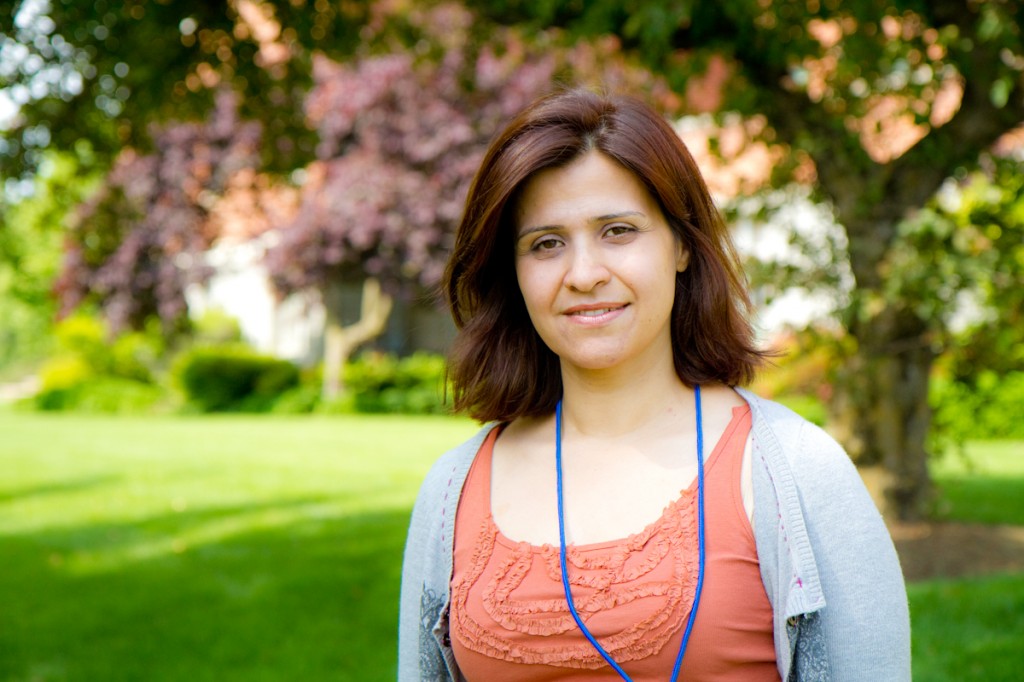In the eight years since first attending the Summer Peacebuilding Institute (SPI) at Eastern Mennonite University, Ala Ali, an Iraqi-Kurdish civil society activist and peacebuilder, has put the lessons she learned then to extensive practical use.
Now the program development manager for the Iraqi Al-Amal Association, a development, human rights and peacebuilding organization, Ali recently completed a consultancy examining Iraqi women’s roles in peacebuilding for the United Nations Development Programme. She has worked on similar projects for a variety of other international organizations.
As her experience has grown, so has Ali’s reputation as a leader in Iraq in the field of conflict transformation. Accordingly, Ali has been receiving an increasing number of invitations to work with various conflict transformation projects, prompting her to return to Eastern Mennonite University to augment her practical experience with further study.
“I feel that I need to have [more] academic expertise,” she says. In Harrisonburg to take several classes at SPI, Ali is working toward a master’s degree in conflict transformation from the university. She hopes to finish the degree by attending SPI for two more years.
Since coming to SPI in 2004, Ali has also managed programs in Iraq for the International Foundation for Electoral Systems, the Olof Palme International Center, the International Research & Exchanges Board and the Institute of International Education. During that time, she has frequently used curriculum materials, manuals and other resources she brought back from SPI.
Ali said her admiration for her SPI instructors and university’s values and commitment to spreading a “peace culture” were major reasons why she decided to return for further study. “This is the best place for me to come.”
By earning a graduate degree, Ali hopes she can help herself and fellow Iraqis play larger leadership roles in peacebuilding work in their country.
When she attended SPI eight years ago, Ali says few foreign or Iraqi organizations were working directly on conflict transformation (an early leader in this area, she says, was the Iraq office of Mennonite Central Committee, which sponsored her to attend SPI that year). In the years since, peacebuilding has become an increasingly common focus of non-government organizations (NGOs) in Iraq, though they have largely relied on foreign experts for leadership.
While these organizations devote more and more energy to peace work in Iraq, Ali says that a lack of coordination and communication among them has become a challenge. If these different actors were more aware of others’ work, of unmet needs within their communities, and of how specific projects complement – or hinder – others, everyone would be able to work more effectively toward a more peaceful future.
With that in mind, one of Ali’s major goals for the future is to establish a conflict transformation center to provide various NGOs with networking opportunities, conflict transformation resources, training and, eventually, partnerships with academic peacebuilding programs at Iraqi universities.
Another challenge confronting Ali’s peacebuilding work is the large number of colleagues who end up leaving their homes in Iraq for Europe or North America, often with the encouragement and assistance of international NGO partners. By remaining committed to working for peace in the place she knows and loves best, Ali hopes to stand as a counterexample to those considering leaving.
“Build your country,” says Ali. “Change the reality of your country.”

As I’ve said to Phoebe Kilby several times, if the world leaders would attend CJP , we would have a different world. Keep up the good work!